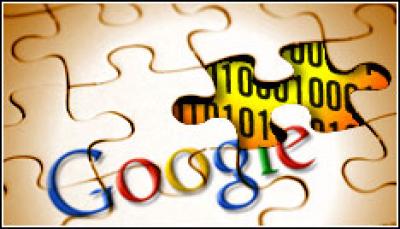Amazon’s Bezos Discuss Google’s Book Plan

Since its release, Amazon.com’s Kindle line of eReaders have become major revenue draws for the company, with the Kindle DX selling out within its first few days of release
Amazon.com CEO Jeff Bezos suggested at the Wired Business Conference in New York City that he had “strong opinions” about Google’s dealings with book publishers over digital rights.
Even as Bezos refused to share those opinions, despite being pressed by interviewer Steven Levy, he hinted at displeasure over Google’s attempts to scan books with the intent of creating a massive digital library of volumes for purchase.
“It doesn’t seem right that you should do something, kind of get a prize for violating a large series of copyrights,” he said, adding that the settlement needs to be “revisited.”
Google recently received Civil Investigative Demands (CIDs) from the U.S. Justice Department over the digital books agreement, which critics have argued violated antitrust issues. CIDs function as formal demands for information; in Google’s case, they will proceed separately from the actual settlement approval, currently winding its way through federal court.
Google has said through its chief legal officer, David Drummond, that it would be open to changing the settlement terms in the face of “a compelling argument.” Under the original terms of the agreement between Google, The Authors Guild and the Association of American Publishers, Google is guaranteed the same terms of any future competitor when negotiating over digital book rights.
The agreement also stipulated that Google create a nonprofit Book Rights Registry to handle digital rights issues. Nonetheless, consumer advocates very publicly cried foul, eventually leading to the Justice Department’s CID.
Amazon.com has a very vested interest in digital books and their rights, given that sales of the Kindle line of eReaders, and its 300,000 eBooks, represent more than a third of the company’s book-related revenue.
The Kindle line remains immensely popular, with the latest version, the large-screened Kindle DX, selling out in the US within three days of its 10 June release. The device will be available again in the US on 17 June.
While Amazon.com refuses to reveal exact sales figures for the Kindle line, the devices are expected to earn billions over the long-term, with one analyst at Barclays Capital predicting that Kindle will make the company up to $1.2 billion (£734m) in sales in 2010 and $3.7 billion in 2012.
The Kindle DX, which retails for $489, features a 9.7-inch grayscale screen, the better to not only read books, but also newspapers and .PDF documents. Amazon.com has signed deals with five textbook publishers and three newspapers to distribute content via the Kindle DX’s 3G wireless access. The device also includes 3.3 GB of storage, active .PDF support, and an auto-rotate feature for viewing documents from different angles.
Features such as color are still years off, according to Bezos, who said during a shareholders meeting on May 28 that such displays are “not ready for prime time.”
In the meantime, however, Amazon.com finds itself facing increased competition in the space. In March 2009, Sony and Google announced that the search-engine company’s public-domain eBooks would be available through Sony’s eReaders, including the PRS-700 Reader, the price for which was dropped to $350 in order to compete with the then-new Kindle 2, priced at $359.
That move was perhaps inevitable given the high profile with which Bezos had announced the Kindle 2 in February 2009; the launch, at the Morgan Library and Museum, included a reading by bestselling author Stephen King.